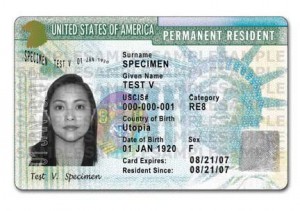 Back when control of Hong Kong was returning to Chinese rule from the British, the topic of buying your way into U.S. citizenship was a hot topic. I hadn’t seen much in the news about this strange quirk of the American immigration system again, until this week, when Yahoo Finance ran an article discussing how a green card can cost you as little as $500,000 U.S. dollars. That number was a surprise to me, since I was already familiar with the EB-5 program, established by the Immigration Act of 1990 and thought the terms involved investing $1 million U.S. dollars.
Back when control of Hong Kong was returning to Chinese rule from the British, the topic of buying your way into U.S. citizenship was a hot topic. I hadn’t seen much in the news about this strange quirk of the American immigration system again, until this week, when Yahoo Finance ran an article discussing how a green card can cost you as little as $500,000 U.S. dollars. That number was a surprise to me, since I was already familiar with the EB-5 program, established by the Immigration Act of 1990 and thought the terms involved investing $1 million U.S. dollars.
It turns out 10,000 visas are set aside for this program a year, and of those 10,000 visas, 3,000 are set aside for “targeted employment areas”, generally rural areas or areas where unemployment is greater than 150% of the national average. In these locations, you only need to invest $500,000 in a new business or preserve jobs by investing in money losing businesses to qualify for the program. This investment gets you on the fast track to a green card and citizenship. Just 10 to 18 months to a conditional green card (compared to 5 to 15 years for a green card through a relative, or 3 to 20 years for an employment based one).
So getting a green card is cheaper than I thought, a bargain at only $500,000. What’s surprising about this though, is just how little this program is used each year. According to U.S. Citizenship and Immigration Services, in 2009, just 1,028 people applied for EB-5 status and 966 were approved, up from 776 applications and 485 approvals in fiscal 2007. Applications and approvals rose sharply in fiscal 2010, to 1,727 and 1,271, respectively. But all of these numbers are just a fraction of the 10,000 available slots each year.
Back when my family emigrated to the U.S., we were lucky. My dad came on a student visa, and two years after his arrival the U.S. government sent an invitation to his wife and kids to join him with a green card for each of us. It was their program to get doctoral students to stay in the U.S. Many of my relatives in the U.S. came the same way. Later on when another aunt and uncle wanted to move here, they had to go through the long “relative support” process, and it took almost 10 years before they were processed and given green cards. All of my family in the U.S. are U.S. citizens now, so no more green cards for us, but it’s certainly interesting to see what it takes to get the highly sought after green card and how it’s pretty easy if you’ve got the money.







